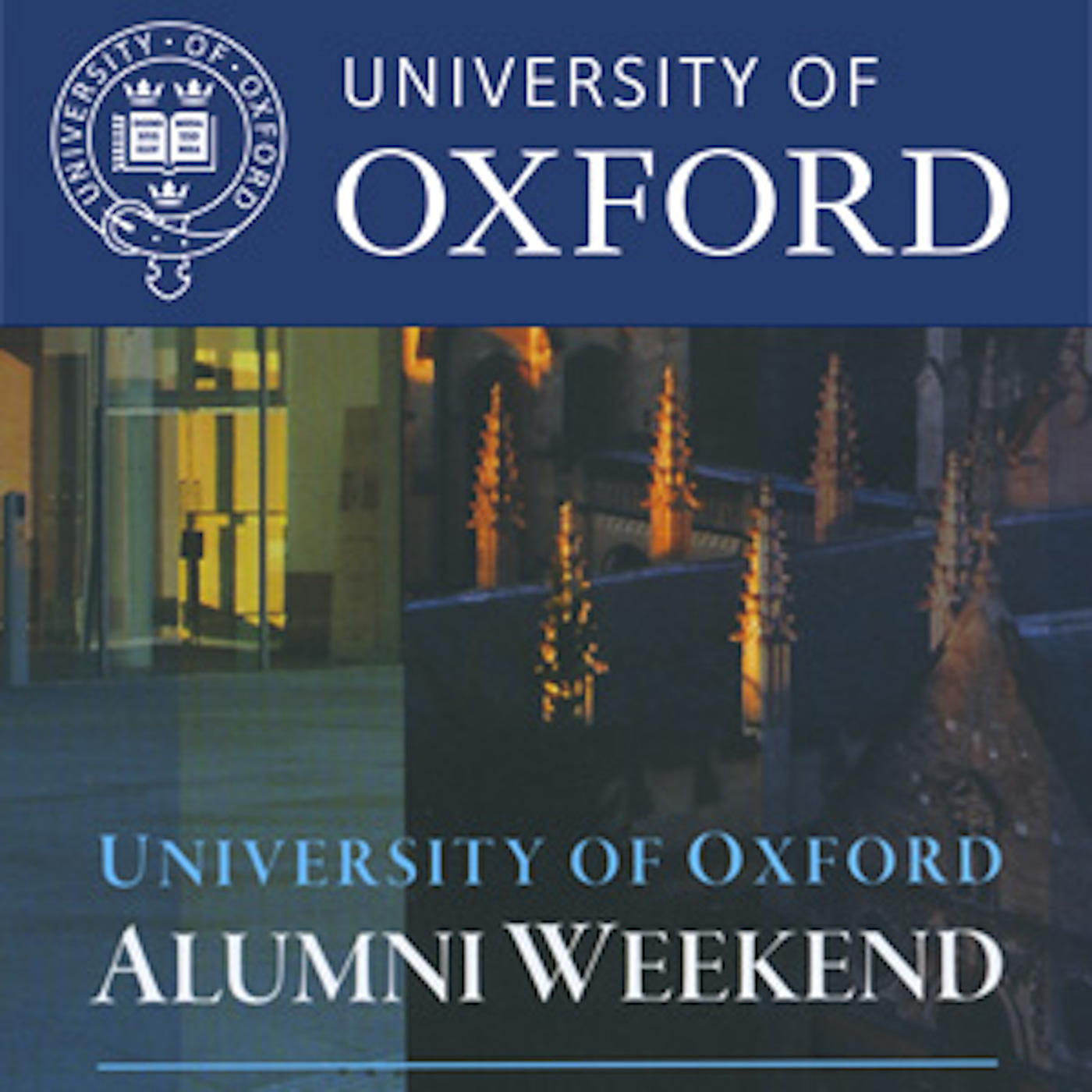Episodes
This Alumni Weekend panel discusses future energy needs and steps that must be taken to increase the chance that they can be met sustainably. World energy consumption is increasing, driven by economic development in countries where more is needed to lift billions out of poverty. Our energy is mostly provided by burning fossil fuels, which is driving climate change and producing debilitating pollution. The gap between realistic energy projections and low carbon aspirations is widening.
25th...
Published 04/28/15
Re-visiting the time of Freud, Klimt and Schönberg, the Alumni Weekend panel surveys and analyse this unique period in Vienna’s history and in Western culture. In the opening years of the twentieth century, Vienna – the capital of the Austro-Hungarian empire – provided the grand setting for a proliferation of artists, architects, composers, writers and thinkers whose explorations heralded a number of significant movements in modern culture.
25th April 2015, Orangery, Schoenbrunn,...
Published 04/28/15
Panel discussion of the Ukraine reviewing the current situation, exploring the context of the conflict which broke out in 2014, assessing its impact on Europe, and identifying what the international community can learn and how it should respond. 25th April 2015, Orangery, Schoenbrunn, Vienna. Chaired by the Chancellor of the University of Oxford, Lord Patten on Barnes CH and featuring Jutta Edthofer (Head of Division Eastern Europe and Central Asia, Federal Ministry for Europe, Integration...
Published 04/28/15
This talk illustrates how Tibetan Buddhism relates to the landscapes of the Tibetan plateau, to form a unique, truly Himalayan blend.
Published 11/11/14
The causes of the First World War have long been controversial and remain so. The Warden of St Antony's College, Oxford, and author of The War that Ended Peace (2013) brings us up to date on the debate.
Published 11/04/14
Ira Lieberman provides an expert analysis on the evolution of micro-finance institutions. Followed by Juan Guerra, founder of StudentFunder – a case study.
Published 10/22/14
Social finance and social investment is creating a global buzz, with estimates that the sector will grow over the next decade – an emerging trend that may lead to both vibrant social change and financial returns on investment.
Published 10/22/14
Sir John Bell, Regius Professor of Medicine and Will Hutton, Principal of Hertford, in conversation.
Published 10/22/14
Chas Bountra, a popular speaker at the recent Meeting Minds: Alumni Weekend in Asia, will explain how Oxford is creating a new ecosystem for drug discovery.
Published 10/07/14
Nigel Bowles explores Nixon’s politics that achieved a synthesis of strategy, imagination, ideologies, and calculation rare among Presidents.
Published 10/07/14
Richard Ovenden, Bodley’s Librarian and Fellow of Balliol, and Diarmaid MacCulloch, Professor of the History of the Church and Fellow of St Cross.
Published 10/06/14
How has mathematics emerged over recent decades as the engine behind 21st century science? Alain Goriely looks at this question and more.
Published 10/06/14
Joe Cartwright provides a geological perspective into the exploration of shale gas reserves. Creative Commons Attribution-Non-Commercial-Share Alike 2.0 UK: England & Wales; http://creativecommons.org/licenses/by-nc-sa/2.0/uk/
Published 10/06/14
What constitutes a cyber-attack and who conducts them? What are the risks to society? Sadie Creese will discuss these issues and explain research underway at Oxford to help in the detection and prevention of attacks.
Published 10/03/14
Professor Lionel Tarassenko, an alumnus of the Department and its new Head as of September 2014, sets out his vision for the Department for the next five years. Creative Commons Attribution-Non-Commercial-Share Alike 2.0 UK: England & Wales; http://creativecommons.org/licenses/by-nc-sa/2.0/uk/
Published 10/03/14
Paul Newman talks about the UK’s first self-driving car – being developed at the Department of Engineering Science. He’ll explain the project’s motivation, its underlying technology, and its impact on the transport sector and beyond. Creative Commons Attribution-Non-Commercial-Share Alike 2.0 UK: England & Wales; http://creativecommons.org/licenses/by-nc-sa/2.0/uk/
Published 10/03/14
Globalisation has brought us vast benefits including growth in incomes, education, innovation and connectivity. Ian Goldin argues that it also has the potential to destabilise our societies.
Published 10/03/14
Professor Whatmore, who focuses on the interface between cultural geography, political theory and science and technology studies, will draw upon her recent research to propose a new approach to living with flooding.
Published 10/03/14
Drawing on European and Middle Eastern sources, historian Eugene Rogan provides an overview of the Great War in the Middle East from both sides of the trenches.
Published 10/03/14
Tom Higham examines some of the projects the Radiocarbon Accelerator Unit has been involved with over the last few years; from dating the Neanderthal extinction, to identifying the bones of Richard III and Alfred the Great.
Published 10/03/14
This panel debate discusses key facts and fiction in international migration, and presents new ideas for a better politics of immigration.
Published 10/02/14
World-renowned mathematician Sir Roger Penrose, Oxford University, describes how crystalline symmetries are necessarily 2-fold, 3-fold, 4-fold, or 6-fold.
Published 10/02/14
Lord Patten of Barnes, Chancellor of Oxford University draws upon his experience at the highest levels in the public sector to share his unique perspective on Britain over the last seven decades. Creative Commons Attribution-Non-Commercial-Share Alike 2.0 UK: England & Wales; http://creativecommons.org/licenses/by-nc-sa/2.0/uk/
Published 10/02/14
This lecture by Jamie Lorimer explores new ways of thinking and doing environmentalism that need not make recourse to nature. The diagnosis of the ‘Anthropocene’ marks the public end of the idea of nature as a pure place removed from society and revealed by natural science. This problematic idea has been central to much Western environmentalism. This lecture explores new ways of thinking and doing environmentalism that need not make recourse to nature. It focuses on the promise and pitfalls...
Published 10/02/14
Illustrated with photographs from previous trips, this talk by Professor Mark Smith contrasts the Nile Valley and the desert and explore how the relationship between them developed over the course of Egyptian history. Creative Commons Attribution-Non-Commercial-Share Alike 2.0 UK: England & Wales; http://creativecommons.org/licenses/by-nc-sa/2.0/uk/
Published 10/02/14


